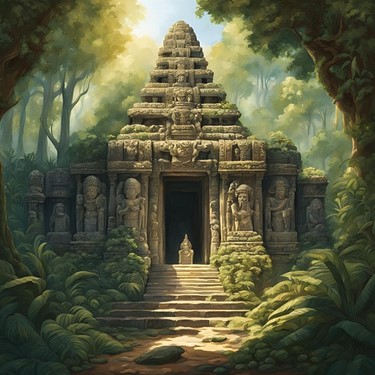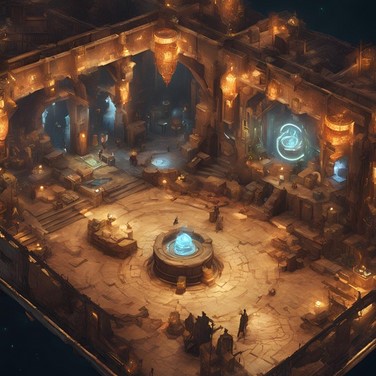Before the dev diary begins in earnest, I think it worth clarifying that the lore pages are not written with an omniscient perspective. By the language used, I tried to imply that they were being written by the hand of a historian of the period’s perspective on the world. Obviously, Yazatas are not the “slaves” of Ahura Mazda, and Shiva is not the “brother” of Vishnu. However, a scholar working off of second or third-hand accounts, generally skeptical and possibly somewhat prejudiced, would naturally attempt to rationalize other worldviews and attempt to cram all the nuance into a framework that fits with said scholars pre-existing knowledge. I will most certainly, when doing second passes in future lore pages focused on specific regions and cultures, have a much more nuanced take on matters (including religion, but other aspects of culture and society as well), likely written from indigenous (or near enough) perspectives.
With that out of the way, time to talk about gods for real.
Let’s say it’s just around the dawn of the European bronze age, over three and a half thousand years ago. You are descended from some of the warlord settlers who have conquered their way south from the banks of the Danube to the hills and mountains of Attica. Their fire for pushing new frontiers lives on in you, and you abandon your life as a Mycenaean aristocrat for a ship, the sea, and the stars. In short, you are a ranger, and a high level one at that. You have sailed west, past where the stone corpse of Atlas lies reputedly slain by your kinsman the king Perseus, and saw there beyond the stone cities (which you name “Atlantis” but the locals call “Chichen Itza”) beyond that nearly endless sea. You have gone east to face the titan progenitors of the Varanidae (Karbash) on the island known in myth as “Komodo”. You have gone beyond even that, sailing the entire coast of Serica, and further to stop at mysterious and wondrous lands you would never have known would one day be called California, Panama, Peru, and Chile. When you return home with all of your treasures, your magic items, and your experience, you become an instant legend. You are nigh-invincible; you have defeated monsters of CR 20 and above; everyone will remember the name Hermehas. When you pass, your legends become myths, and somewhere down the line, your tribe eventually decides that your feats could not have been done by a mere human, and thus is your godhood born in the minds of your descendants.
Does this count as becoming a god “for real”? There is a modern and Abrahamic-normative perception of gods as omniscient, omnipotent (or near enough), and eternal, each aspect of which was not necessarily considered an absolute in the eyes of the ancients. Osiris and Odin have been known to die (though admittedly not permanently), Ahura Mazda requires the assistance of the human Saoshyant to defeat Angra Mainyu, and the Olympians notoriously punished the kings who outwitted them. Often, the line between people and gods is blurred, especially where Pharaohs are worshipped as gods in the flesh and emperors in the Cultus Imperialis are considered to have ascended to godhood in death. In short, what separates a god from a person, so long as said person has enough power to hold the life and death of civilizations in their hands? On the scale of us mere mortals, an adventurer or a dragon might seem worthy enough of worshipful servitude (if only to avoid the consequences of refusing).
If you are the sort who considers such a rationale unreasonable, then I suppose from your perspective Ecumene is a decidedly atheistic setting. There is no power behind the coursing of rivers or the falling of rain, no guiding hand regulating the spark and flow of magic, nothing except the fundamental laws of (fantasy) physics. This is why divine magic would not be compatible with the world; it requires that the prayers of a cleric must be heard by an intelligent power, which then must intelligently grant that cleric the power they seek, and reward or punish them according to their whims. I, personally, cannot imagine anyone or thing having the time for that. Perhaps this makes the world feel cold and purposeless, which is understandable, but look on the bright side; killing a god for your lv 20 quest has never been easier.
Next update will be the start of an ambitious new project, depicting the first sample dungeon for the setting, with some insight into how the world is meant to be played in.



